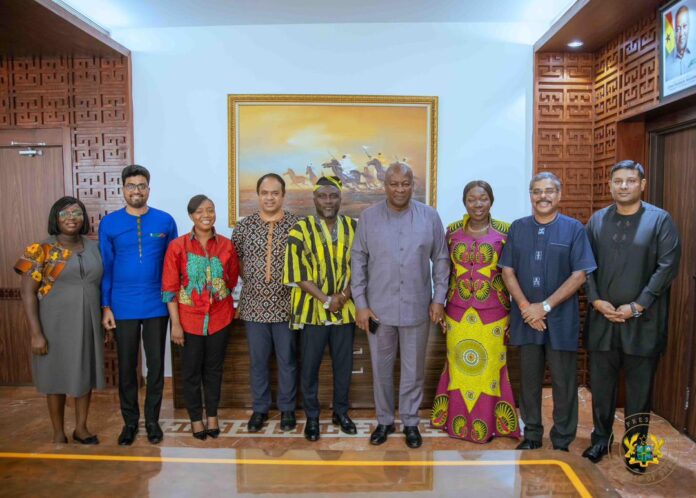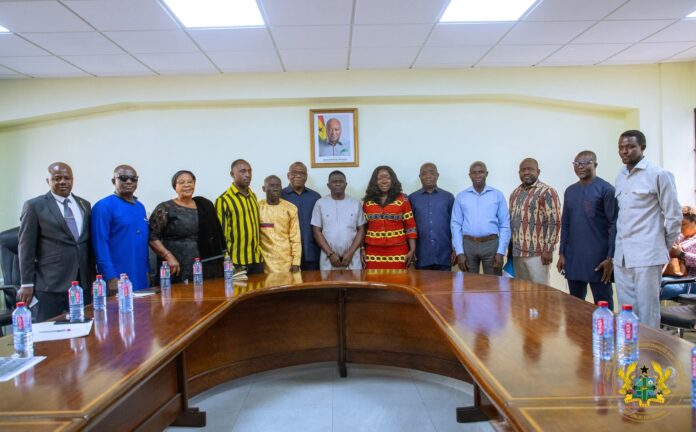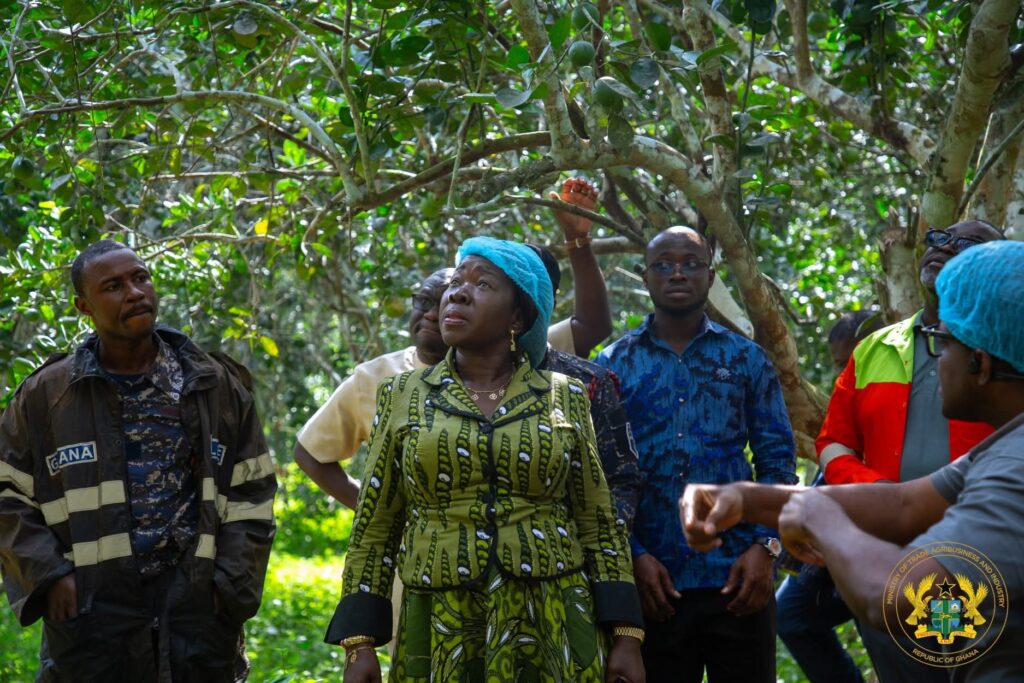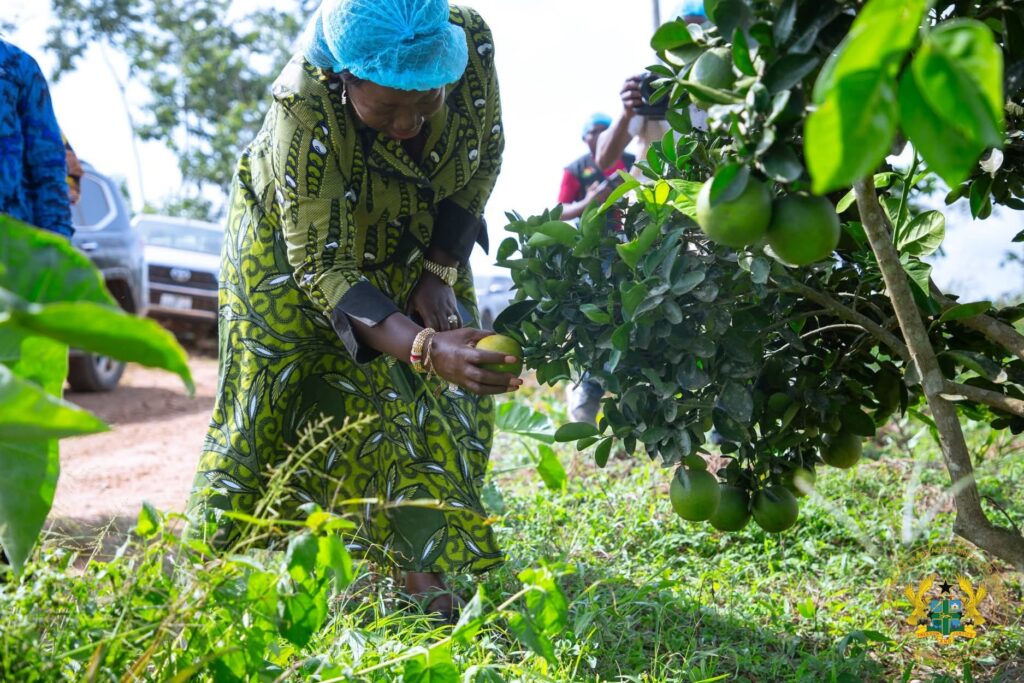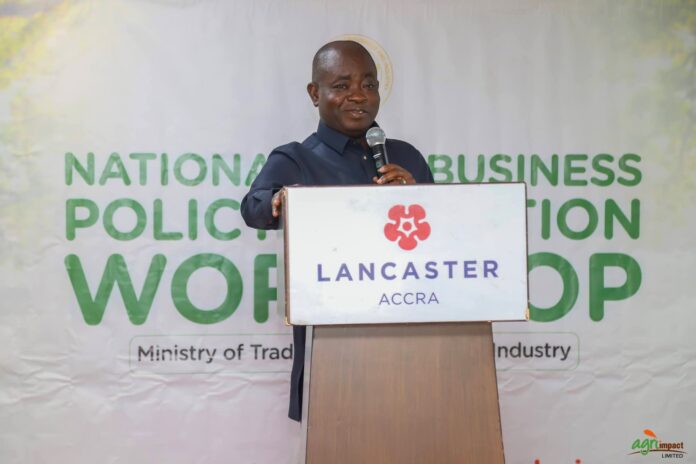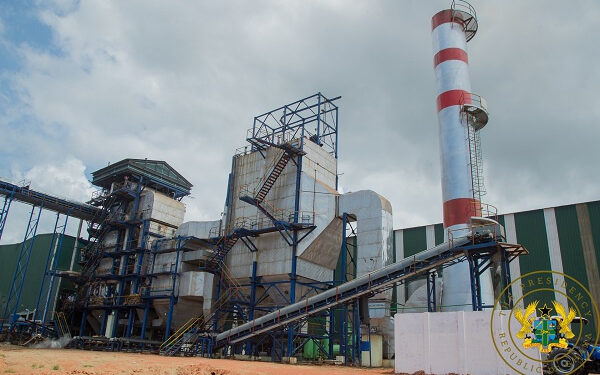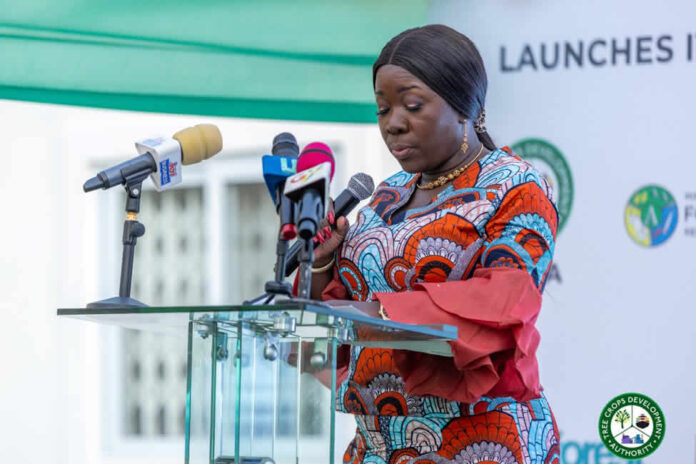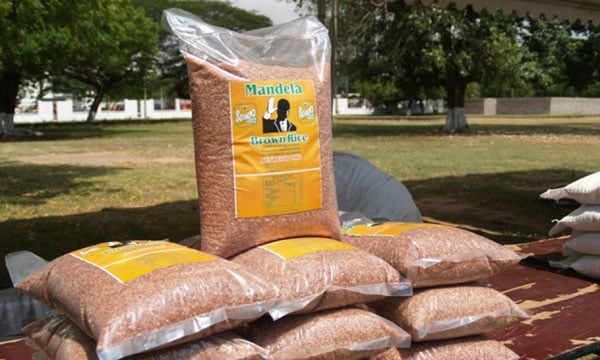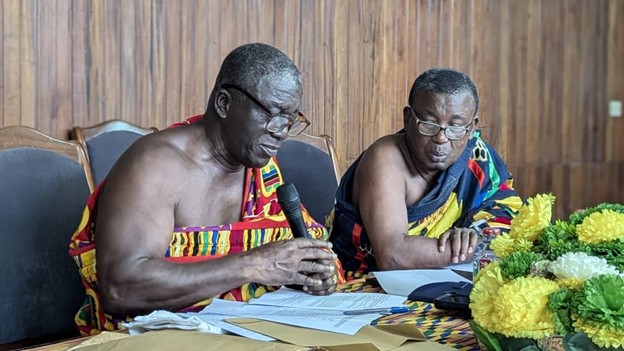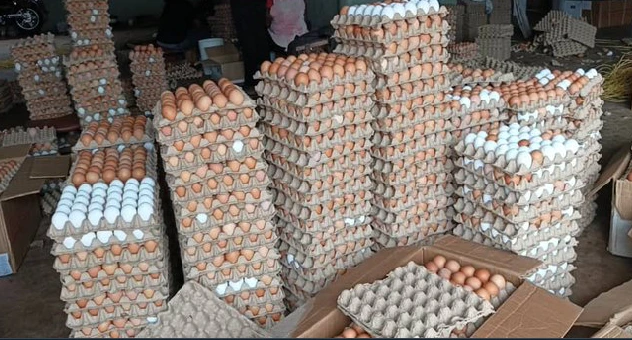The Management of Olam Agri Ghana, led by Country Head, Mr. Baibhav Biswas, has paid a courtesy call on His Excellency John Dramani Mahama, President of the Republic of Ghana, at Jubilee House, in Accra.
The meeting is a follow up on the President’s visit to the Olam Agri headquarters in Singapore last August, and forms part of ongoing engagements to deepen collaboration between the company and the Government of Ghana.
Discussions centred on key issues shaping Ghana’s agriculture sector and trade development, as well as Olam Agri’s future strategic investments aimed at positioning Ghana as a regional manufacturing hub. Both parties reaffirmed their commitment to strengthening public-private partnerships, driving sustainable growth in the grains and rice sectors, and creating jobs to enhance livelihoods.
President John Dramani Mahama was accompanied by Minister of Trade and Industry, Hon. Elizabeth Ofosu-Adjare; Economic Advisor to the President, Mr. Seth Terkper; Presidential Adviser and Special Aide, Ms. Joyce Bawa Mogtari; Chief Executive Officer of the Ghana Investment Promotion Centre (GIPC), Mr. Simon Madjie.
Olam Agri’s delegation comprised Mr. Raghav Mandhana, Regional Financial Controller; Mr. Soumya Saxena, Head of Grains Business; Mr. Ankit Pansari, Financial Controller; Ms. Nora Andoh, Head of Corporate Account, Tax & Compliance Manager; Ms. Naa Dzama Amu, Corporate Communications Manager; and Mr. Mubarak Mahama, Regional Sales Manager.
Mr. Baibhav Biswas thanked the President for the opportunity to engage and for his continued interest in Olam Agri’s operations in Ghana and the sub-region. He reiterated Olam Agri’s long-term commitment to investing in Ghana’s agricultural sector, partnering with local stakeholders, and supporting government initiatives to ensure stable food supplies and affordable staple foods for Ghanaians.
His Excellency John Dramani Mahama welcomed Olam Agri’s ongoing investments and emphasised the important role of credible, long-term private sector partners in advancing Ghana’s economic and social development agenda. He encouraged the company to continue aligning its initiatives with national priorities on industrialisation, job creation and rural development.
Olam Agri has operated in Ghana for over 30 years and is a leading player in the processing and distribution of key food staples. The company works with a broad network of local suppliers, distributors and farmers to strengthen food systems and deliver quality, safe and affordable food products to Ghanaian households

